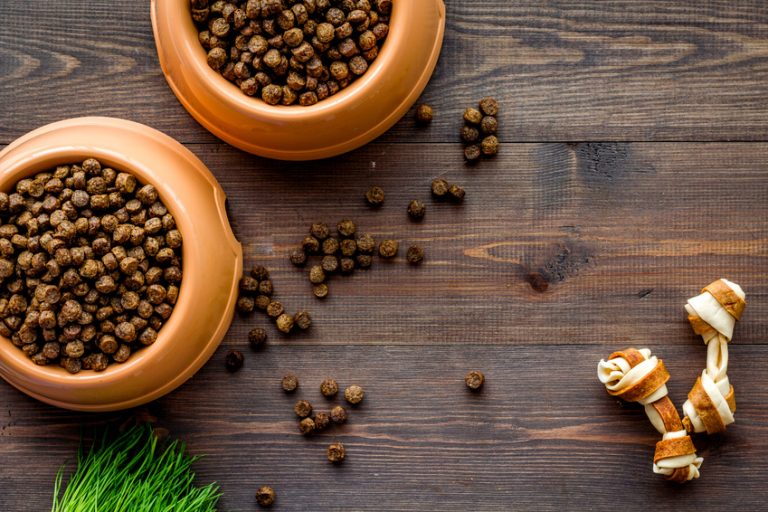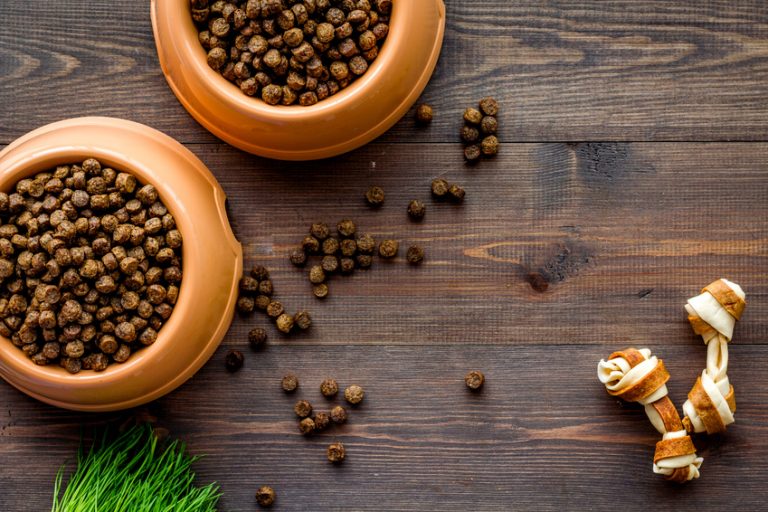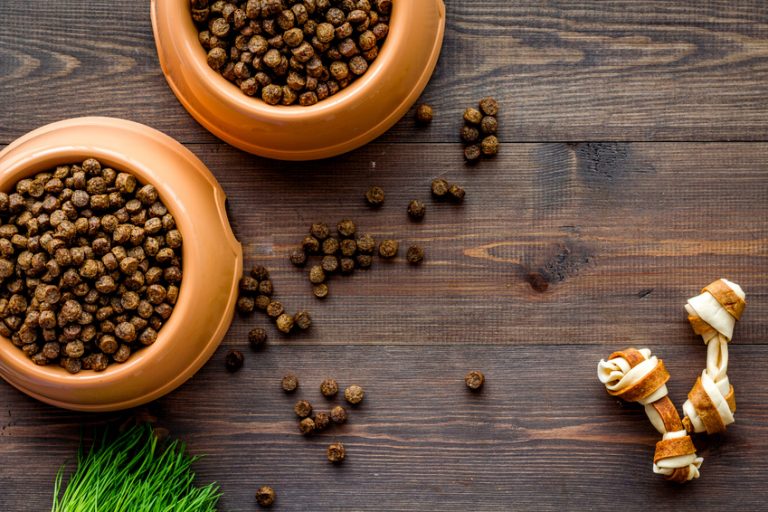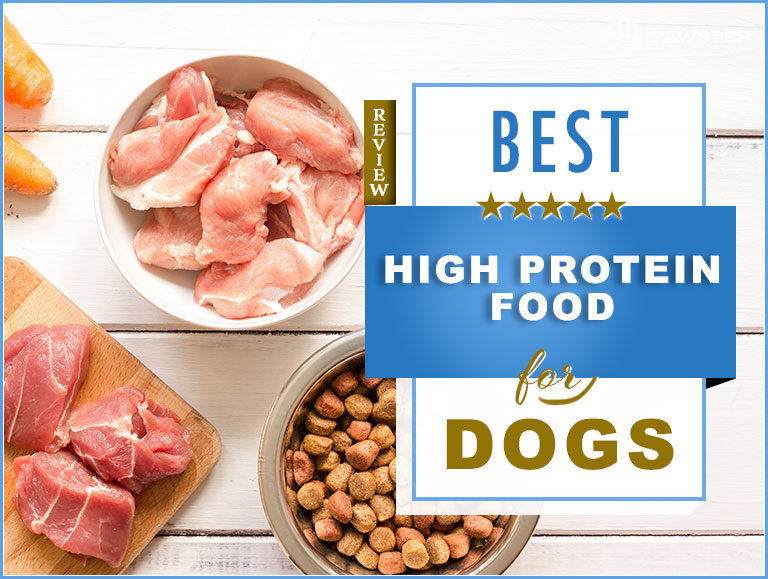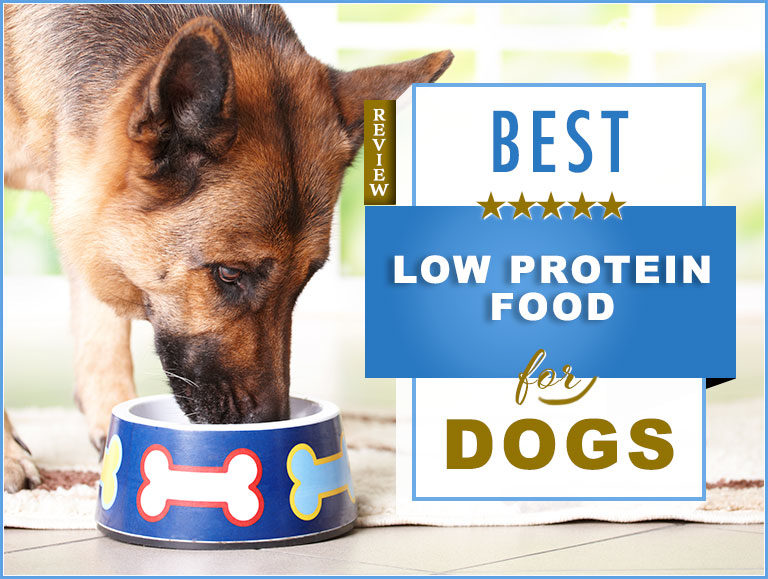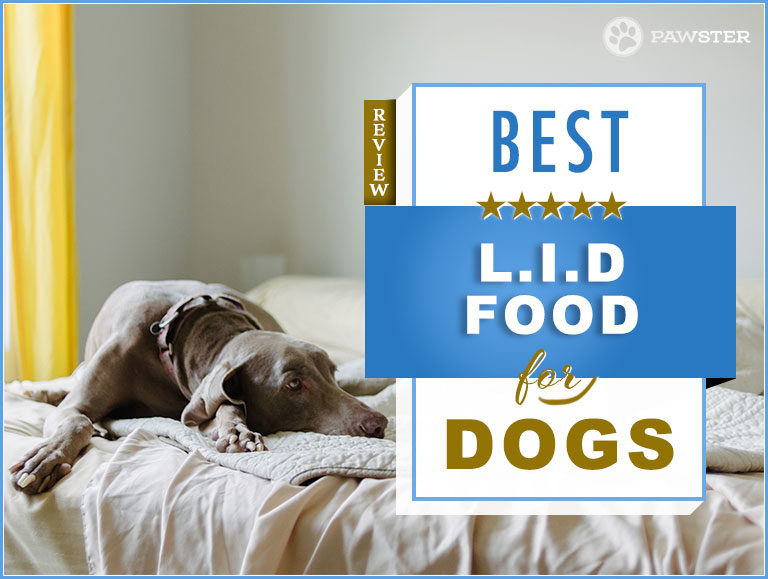Best Food for Shedding Dogs : Our 2024 Guide
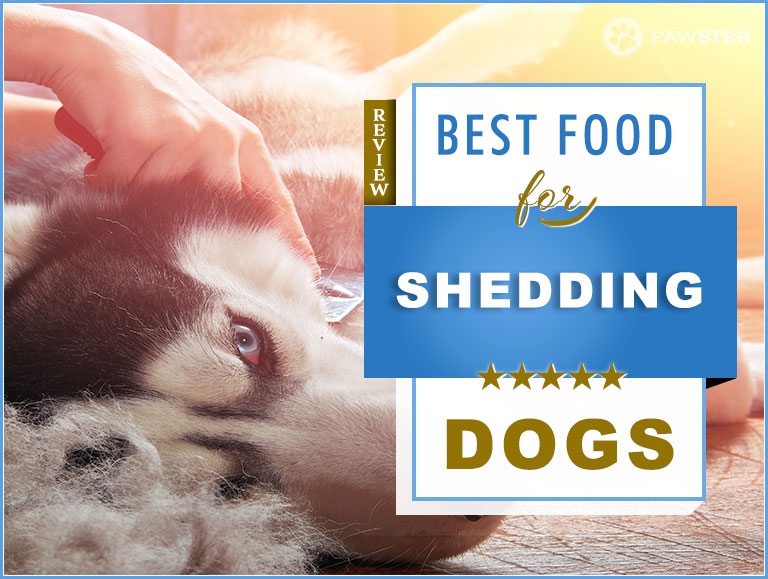
| Sneak Peek: Best Foods for Shedding Dogs | |||
| Rank | Product | Price | Rating |
| #1 |
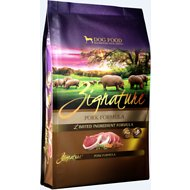 |
$2.03/lb |
A+
|
| #2 |
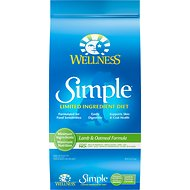 Wellness Simple Limited Ingredient Diet Lamb & Oatmeal Formula Dry |
$2.19/lb |
A
|
| #3 |
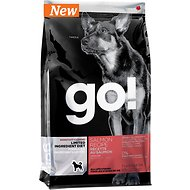 Go! Sensitivity + Shine Limited Ingredient Diet Salmon Recipe Grain-Free Dry |
$2.71/lb |
A
|
Contents of Article
When dog owners get together it’s not unusual for them to start comparing notes about their dogs, especially their shedding. You can hear tales of dust bunnies big enough to choke a vacuum cleaner, dogs that seem to shed year round, and people who think dog hair is a condiment like mustard or mayonnaise because it’s always on their food. Let’s just say that shedding is a big topic for dog owners.
With all of this attention to shedding, you probably know that it’s normal for your dog to lose his old coat so new coat can grow in. This happens for most dogs in the spring and fall. Some dogs will have one big shed (or “moult”) once a year. Some dogs have lots of hair one day and suddenly their hair all seems to fall out overnight, leaving them looking slightly naked and embarrassed. Other dogs seem to shed a little all the time. Shedding is not necessarily related to long and short coat either. Many short-coated breeds are heavy shedders. Labradors, for example, seem to shed a little all the time, while some long-coated breeds don’t shed much at all, such as the Maltese. Hairless breeds and single-coated breeds that are often recommended for people with allergies (often called “hypoallergenic” breeds) don’t usually shed much but they can require other grooming care for their coats.
There are other reasons why dogs shed. Stress, fleas, skin infections, allergies, some diseases (such as Cushing’s, thyroid, kidney, liver), and other problems can also make your dog shed or lose hair excessively. Poor nutrition can also make your dog shed excessively.
If you think your dog is shedding excessively we would recommend a visit to the vet just to rule out some of these possibilities. If your dog’s shedding is related to his diet, there are some good foods on the market to help his skin and coat. These foods can improve his nutrition and minimize the shedding.
Along with feeding a nutritious food you can help your dog’s shedding by brushing him regularly. This will remove dead coat on a steady basis so it doesn’t end up on your floor and furniture. New coat will grow in and look healthy. Bathing your dog also helps loosen dead hair so you can brush it out easily. You might consider using a specialty shampoo and conditioner for your dog’s coat such as moisturizing shampoo and conditioner or one that your vet recommends.
Here’s a look at good foods for dogs that are shedding excessively.
What to look for in a good food for shedding
Unless your dog has a health problem of some kind, he will likely need a dog food with good quality ingredients that has lots of good meat protein and good animal fat. These nutrients are good for most dogs plus they are beneficial for dogs that shed a lot since they are good for a dog’s skin and coat. The dog food should be nutritionally balanced to meet the needs of your dog. This means the food will contain lots of B vitamins along with vitamins A, D, E, and K. Dogs also need minerals such as (in alphabetical order) calcium, choline, copper, iodine, iron, magnesium, manganese, phosphorous, potassium, selenium, sodium, and zinc. If you’re wondering about carbohydrates in your dog’s diet, they should be kept on the low side. Whether you feed a food with or without grains is up to you and your dog. If he can eat some healthy grains (not necessarily corn or wheat), there is no particular reason to avoid all grains. Oats and some other grains can be a good source of carbs and dietary fiber in small amounts.
Dog foods to help with shedding typically contain higher amounts of essential fatty acids (EFA). Dogs can’t produce these EFAs themselves so they have to get them through the food they eat. You are probably familiar with EFAs such as the omega-3 fatty acids: linoleic acid, arachidonic acid, gamma linolenic acid and dihomogamma linolenic acid. The best source for omega-3 fatty acids comes from cold water fish. You may see some dog foods that claim they provide omega-3 fatty acids from flaxseeds or other plant sources but these are not good sources for your dog. Dogs are not able to break down these plant sources of omega-3 and use them the way they can use omega-3 from fish or animal sources. Humans can use plant sources of omega-3 but they are mostly lost on dogs.
Dog foods to help with shedding will also contain omega-6 fatty acids such as alpha linolenic acid, eicosapentaenoic acid and docosahexaenoic acid. Poultry and pork fat, as well as corn and some other plant oils, are sources of omega-6 fatty acids.
When choosing a dog food, especially one for your dog’s skin, coat, and shedding problems, it’s important to look for one that is high in omega-3 fatty acids. The proper ratio of omega-3 to omega-6 fatty acids is important. Most dog foods today have lots of omega-6 compared to omega-3 but omega-3 is crucial. There is ongoing research to try to determine the best ratio. Top foods that include good sources of omega-3 usually have a ratio from 10-1 to 5-1 of omega-6 to omega-3. (There is always more omega-6 than omega-3, but you want the ratio to be reasonably close.)
Some people like to add a little extra omega-3 fatty acid to their dog’s diet in the form of fish oil to make sure he is getting enough. Dogs in the winter, especially, can have dry, brittle coat that looks dull. Dogs may shed some of this coat or the coat may break off. Dry indoor heat, without much humidity in the home, is often blamed for this shedding. You can add a humidifier to your home and add some fish oil to your dog’s diet to help with this winter dry coat and shedding.
AAFCO (the Association of American Feed Control Officials) doesn’t consider EFAs as essential to your dog’s diet but they clearly affect your dog’s skin and coat. We can’t say, categorically, that they will stop excessive shedding, but they are probably your best bet. If your dog’s skin and coat improve, excessive shedding should be reduced.
Different kinds of dog food for shedding
As we mentioned earlier, dogs can shed excessively for different reasons. It’s important to determine the reason why your dog is shedding so you can choose the best food for his shedding. This can involve a trip to the vet to see if your dog has allergies, a skin infection, or certain diseases. Your vet can treat some of these issues. You can find solutions to flea and tick problems in the form of topical preventives or some of the popular oral treatments available today. If your dog has allergies or other skin problems, your vet can help with these problems, too, but changing your dog’s diet may also be advised.
Shedding caused by food allergies
One terrible symptom of allergies in dogs is itching – followed by scratching. This scratching will often cause your dog’s skin to become raw and the hair comes out. After you or your vet have identified your dog’s triggers, you can buy dog food that doesn’t contain these ingredients. If your dog has only one trigger, such as chicken, you will still have lots of protein choices such as beef, lamb, and fish dog foods. Just check the ingredients to make sure there are no items that include chicken, chicken broth, or anything else made with chicken. The same is true for other allergens. If your dog is allergic to eggs, for example, you would need to check ingredients to make sure none of the items include things made from eggs.
If your dog has several triggers, however, it can be more difficult to find foods for him to eat. In this case, you may want to check out limited ingredient dog foods or foods made specifically for dogs with allergies. Technically, a limited ingredient diet will have one kind of protein and one source of carbohydrates. However, many commercial LIDs will also contain lots of added vitamins and minerals, along with some other ingredients. But they should still only have one kind of protein and a carb source. The carbohydrate is usually something a little different than those found in ordinary dog foods. It could be tapioca, for instance, instead of corn. Many dogs with food allergies can eat these foods so these LIDs are a good place to start if your dog has an allergy and he’s shedding a lot. Or you can look at foods that are specially made for dogs with food allergies.
Shedding caused by food sensitivities
Dogs with food sensitivities are less likely to itch and scratch than dogs with allergies. A food sensitivity usually manifests by causing your dog to have stomach distress. He may have diarrhea and gas from his food. He can be uncomfortable all the time. While these dogs don’t shed or lose hair from scratching, they are unthrifty and have poor skin and coat, with shedding, because they are not able to digest their food properly. If your dog has a food sensitivity, talk to your vet so you can try to identify the ingredients that bother your dog. Look for dog foods designed for dogs with food sensitivities. There is some overlap with dog foods for food allergies but don’t let that bother you. Many limited ingredient diets can be good for dogs with food sensitivities, too.
Prescription dog foods
In dogs with extreme allergies or other health problems, your vet may prescribe a special diet for your dog. Prescription diets often have ingredients that don’t look very appealing to dog owners but they usually contain some prescription ingredients or medication that has been shown to help your dog’s condition. If your dog has allergies, food sensitivities, or another health problem that is affecting his skin and coat and causing excessive shedding (among other health problems), and he’s not improving after trying commercial dog foods, a prescription food could help. These foods are more expensive than commercial dog foods but there are plenty of people who can confirm that they help as a last resort. Talk to your veterinarian.
Dog foods or healthy skin & coat
If your dog doesn’t have food allergies, food sensitivities, or any particular health problem that is causing his shedding, you may be feeding a dog food that isn’t supplying the nutrition your dog needs. You should look for a good food that includes a little special care for your dog’s skin and coat. There are many good dog foods today that feature essential fatty acids to help your dog’s skin and coat. Look at some of these foods and choose one for your dog. Give it a few weeks and see if you notice an improvement in your dog’s skin and coat – and a reduction in his shedding.
Many of the top quality dog foods today include essential fatty acids from good sources. Choosing one of these foods is a good way to keep your dog’s skin and coat looking good and cutting down on excessive shedding.
Many dog foods today are available for dogs in all sizes and for puppies. This is also true for limited ingredient diets, allergy and food sensitivity diets, and foods for healthy skin and coat. You should be able to find these foods for your dog regardless of his age or breed/size.
5 Best Dog Foods That Help With Shedding
We gave you our pick for the best dog food for shedding but there are some other very good foods for dogs that shed excessively. You may want to check out some of these foods as well. Every dog is different. Your dog could respond better to one of these foods. None of these foods contain any corn, wheat, or soy.
| The Scoop : Best Foods for Shedding Dogs | |||
| Rank | Product | Price | Rating |
| #1 |
 |
$2.03/lb |
A+
|
| #2 |
 Wellness Simple Limited Ingredient Diet Lamb & Oatmeal Formula Dry |
$2.19/lb |
A
|
| #3 |
 Go! Sensitivity + Shine Limited Ingredient Diet Salmon Recipe Grain-Free Dry |
$2.71/lb |
A
|
| #4 |
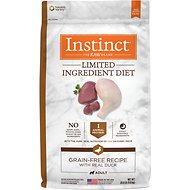 Instinct by Nature’s Variety Limited Ingredient Diet Grain-Free Recipe with Real Duck Dry |
$2.84/lb |
A-
|
Zignature Pork Limited Ingredient Formula Grain-Free Dry
Zignature makes an entire line-up of limited ingredient diets for dogs. This grain free pork formula is made farm-raised, sustainable U.S. pork, peas, chickpeas, and flaxseed. Pork is the only protein source in the food. It has plenty of protein and a good amino acid profile for dogs. Fruits and vegetables provide powerful antioxidants and fiber-rich, low-glycemic carbohydrates. This food is also rich in thiamine, a B-vitamin that is essential for body functions. This formula has no corn, wheat, soy, dairy, or chicken. No potatoes. And it has the essential fatty acids your dog needs for his skin and coat. It’s great for dogs with allergies, food sensitivities, and picky eaters.
Wellness Simple Limited Ingredient Diet Lamb & Oatmeal Formula Dry
Wellness Simple Limited Ingredient Diets come in several formulas that would be good for dogs with allergies and food sensitivities. These formulas could help many dogs with skin and coat problems such as excessive shedding. They have a single source of protein and easily digestible carbohydrates without extra fillers. They have no corn, wheat, soy, gluten, or artificial preservatives, flavors, or colors. This formula features good quality lamb as the first ingredient and it includes probiotics and prebiotics for good digestion. This is a good formula to nourish your dog’s skin and help reduce excessive shedding.
Go! Sensitivity + Shine Limited Ingredient Diet Salmon Recipe Grain-Free Dry
Go! Sensitivity + Shine Limited Ingredient Diet Salmon Recipe Grain Free Dry Dog Food is made by Petcurean, a brand known for making some other popular dog foods such as Summit, Now Fresh, and Gather. This limited ingredient formula is good for all dogs but it was especially created for dogs with sensitivities to grains, gluten, wheat, chicken, and beef. It features premium quality salmon as a single source of fish protein and just a few additional ingredients. The formula is high in protein and low in carbs, with prebiotics and probiotics for digestive health. Antioxidants help your dog have a strong immune system. Essential fatty acids promote healthy skin and shiny coat. Go! Sensitivity + Shine has no by-product meals, added growth hormones, or artificial preservatives. It also comes in duck, turkey, and venison formulas.
Instinct by Nature’s Variety Limited Ingredient Diet Grain-Free Recipe with Real Duck Dry
This limited ingredient duck formula from Instinct has only one animal protein and one vegetable. It’s a simple food that’s designed for dogs with food sensitivities. The duck in the food is raised cage-free. It provides all the essential amino acids your dog needs. It has guaranteed levels of natural essential fatty acids and antioxidants to promote healthy skin and coat, along with immune health. It has no grain, dairy, eggs, chicken, beef, fish, sweet potato, potato, chickpeas, corn, wheat, soy, artificial colors or preservatives.
Conclusion
Dogs can have problems with excessive shedding for many reasons. If your dog is shedding more than normal, we encourage you to have him checked by your veterinarian. There are many good quality dog foods today to help dogs with skin and coat problems. Look for dog foods that contain essential fatty acids (EFAs). Foods for healthy skin and coat, allergies, and skin sensitivities should help your dog with excess shedding due to skin problems.

